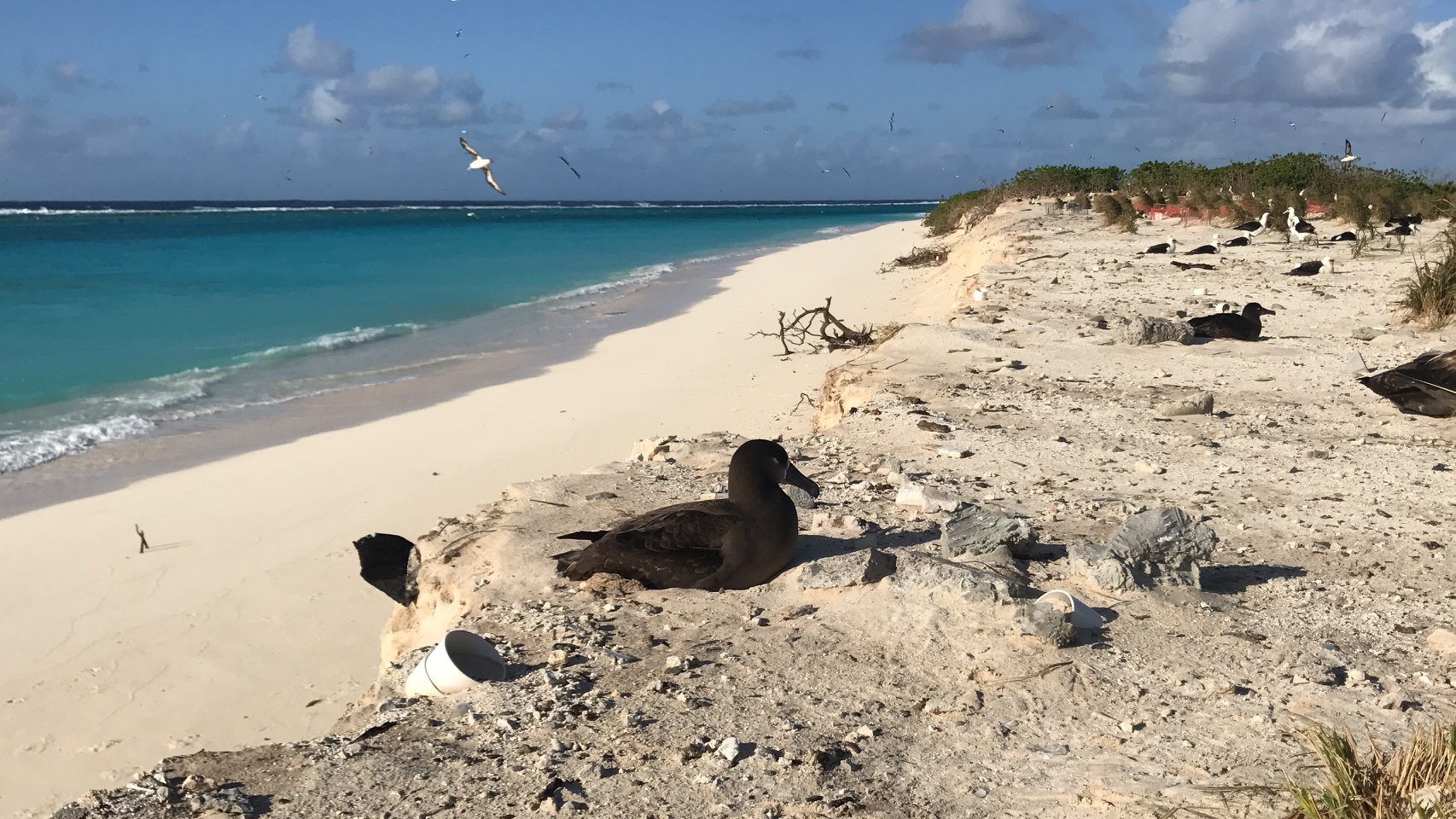 Black-footed Albatrosses nesting on the shores of Midway Atoll, a low-lying Hawaiian island vulnerable to climate change and the catalyst behind the translocation project which is aiming to establish a new colony on Mexico's remote Guadalupe Island. Photograph courtesy of Pacific Rim Conservation
Black-footed Albatrosses nesting on the shores of Midway Atoll, a low-lying Hawaiian island vulnerable to climate change and the catalyst behind the translocation project which is aiming to establish a new colony on Mexico's remote Guadalupe Island. Photograph courtesy of Pacific Rim Conservation
The establishment of a new colony of globally Near Threatened Black-footed Albatrosses Phoebastria nigripes on Mexico’s Guadalupe Island has been given a boost with the arrival of 36 fertilised eggs from Hawaii’s Midway Atoll.
The dramatic move is part of an ongoing conservation effort to ensure the long-term survival of Black-footed Albatrosses whose population is at risk to climate change due to 97% of their breeding grounds being low-lying atolls in the USA’s North-western Hawaiian Islands.
The project is managed by an international group of organisations including Pacific Rim Conservation (PRC), Grupo de Ecología y Conservación de Islas (GECI), and Friends of Midway Atoll National Wildlife Refuge, with coordinated support from the federal governments of both countries.
The project’s translocation team has been in action since early January when they first collected viable eggs from nesting pairs on Midway. The viable eggs were then transported to Guadalupe Island and placed with nesting pairs of Laysan Albatrosses P. immutabilis whose egg had died. Once hatched, the Laysan pairs will raise the chicks as their own until they fledge.
Ninety-three Black-footed Albatrosses have so far successfully fledged from Guadalupe Island as part of the programme, with the first translocated albatrosses expected to return to the island by 2026 according to Pacific Rim Conservation.
ACAP Latest News has been reporting on the project since the first translocations took place in 2020, and an in-depth article about the project is also available at the Audubon website, here.
24 January 2024

 English
English  Français
Français  Español
Español